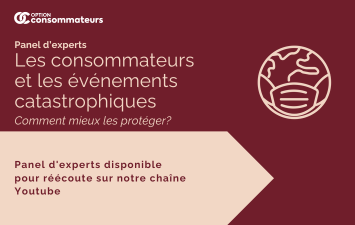
Snowbirds: what happens to your property in the United States in the event of your death?

You've managed to make your dream come true: to buy a property in Florida and spend your golden years there. Congratulations! But what happens to it if you die or become incapacitated?
You're a snowbird now, but are your papers in order and have you planned who your heirs will be? Will your loved ones be able to manage your estate if you become incapacitated? In Quebec, all you need is a valid will and mandate of protection. Things get more complicated, however, when you hold assets south of the border, since you're then in a situation of international law.
To avoid a long and costly process
Settling an estate in Florida or elsewhere in the United States is a long and costly process. In fact, it requires the will to be validated by a competent court, the " probate ", so that the transfer of the property to the heirs can take place.
A will notarized in Quebec is usually recognized in the United States. However, it must be officially translated. You'll also need to obtain a certificate from the Chambre des notaires du Québec stating that the notary is a member in good standing and registered with the professional order, and confirm legal recognition with the U.S. consulate. Finally, an American lawyer must be hired to carry out the probate procedure. Obviously, this will entail costs and delays. Nevertheless, a U.S. will drafted in accordance with the civil laws of the state where the property is located, in addition to a Quebec notarial will, could considerably facilitate the procedures. The U.S. will should state that it applies only to property located on U.S. soil, and each will should mention that it does not cancel the other. The drafting of the U.S. will should be checked by a lawyer specialized in U.S. law, to ensure that it does not interfere with your estate planning in Quebec. Even if you have a U.S. will, the probate procedure must still be carried out. On the other hand, delays and costs will be significantly reduced.
Other solutions to explore
To settle an estate in the U.S., there are other legal avenues you can take. The "Enhances Life Estate Deed" is a document drawn up by a U.S. lawyer, under which you and your spouse, if married, retain all rights to the property for as long as one of you is alive. Upon the death of the last spouse, the property will be transferred to your beneficiaries. Check with a U.S. attorney to see if this procedure may be suitable for your situation, as it does not apply if you are common-law partners.
Another solution is joint tenancy.
Here are some other possibilities you might consider:
- If you own real estate elsewhere in the world, including the U.S., having an international will drawn up is an option. However, it must meet the conditions set out in the 1973 Washington DC Convention. Your notary will be able to give you more information on the requirements and procedure to follow.
- The " Living Trust", or Revocable Trust, avoids theprobate procedure and allows you to name the person who will administer your assets in the event of incapacity, and who will be your heirs upon your death. During your lifetime, you and this trust will be considered one and the same person. This will not take effect until your death, when the transfer will be made to the beneficiaries you have designated. An American lawyer can draw up this type of deed.
- If the spouses are married, the " Husband and Wife Joint Tenancy with Right of Survivorship" allocates the property to the surviving spouse and no one else upon death, despite the existence of a will.
In any case, these procedures should be analyzed by a notary or other legal expert to assess which one best suits your situation. Ultimately, this could save you from having to settle an estate on U.S. soil, paying high fees and incurring lengthy processing delays.
Please note: a mandate of protection or power of attorney drawn up in Quebec is not recognized in the United States. It is necessary to mandate an American lawyer to establish a " Durable Power of Attorney " in the state where the property is located.
This article is written for information purposes only and should not be construed as a legal opinion.






